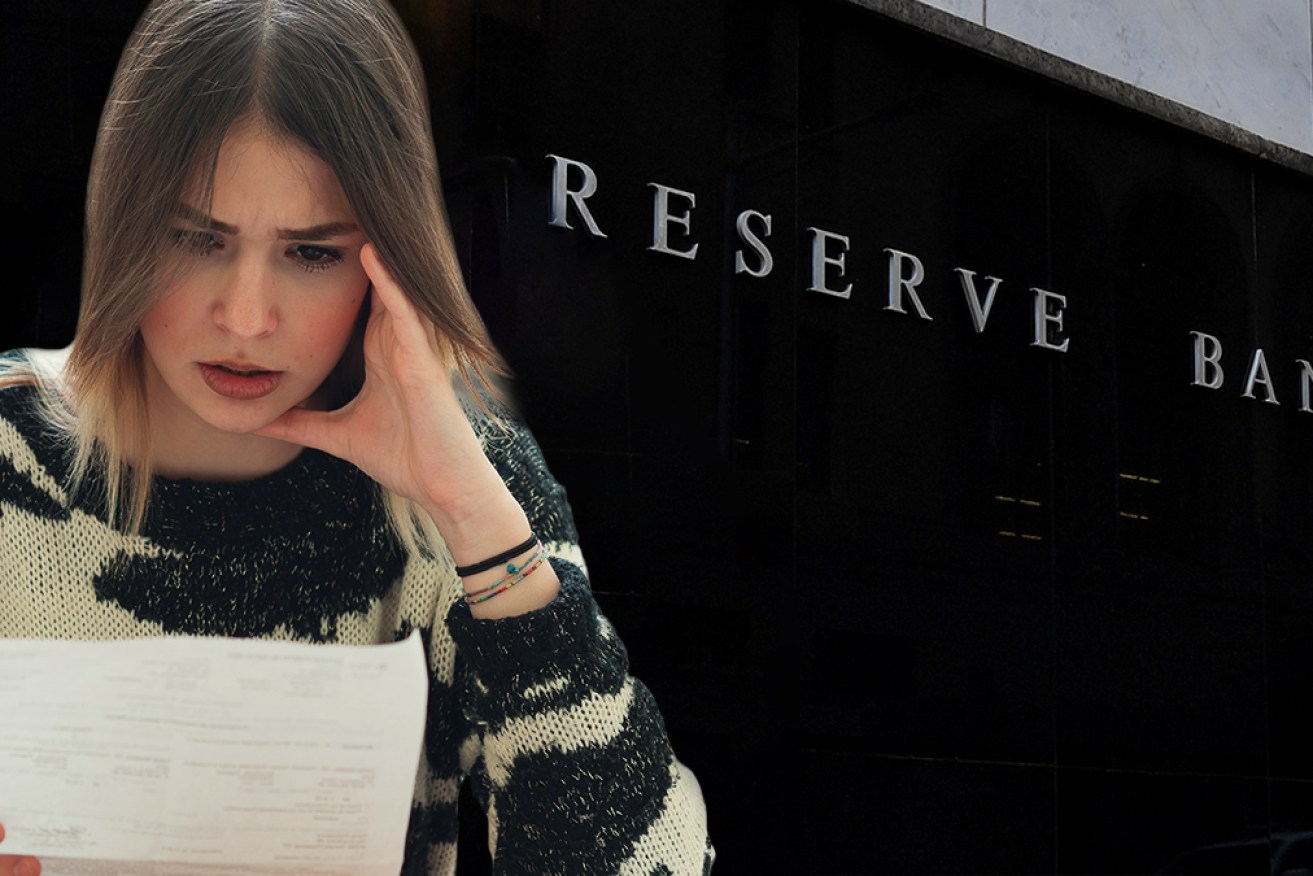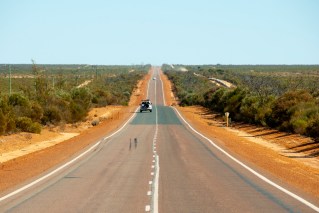Michael Pascoe: Hey RBA, take another month’s holiday. We don’t want another recession


Photo: Getty/TND
After taking January off, the Reserve Bank board should stay on holiday for another month.
Fiddling with rates wasn’t missed this month, and won’t be in February either.
Knowing what it knew at the start of December, the board at least considered leaving interest rates steady before deciding on a 25-point increase, midway between the previous 50-point hikes and zero.
Knowing what it should know early next month, the February meeting should leave rates unchanged – despite the noise expected this Wednesday when the December quarter Consumer Price Index (CPI) is released with a headline rate of maybe 7.5 per cent.
That the RBA has done enough rate lifting is a minority view, but the evidence is mounting for the minority as fears grow that the global economy will need stimulus, not greater further restraint, in 2023.
Lower expectations
The money market has been steadily lowering its peak rate expectation but is still betting the RBA has another couple of rises in it to lift the present cash rate of 3.1 per cent to 3.5 per cent.
Well, maybe. But that likely means the RBA would face the embarrassment of having to start cutting rates shortly thereafter and face a chorus of complaints about getting monetary policy wrong again. That it put desperation to rebuild its inflation fighting credibility – central banker hairy-chestedness – ahead of the welfare of Australians.
It’s not a good look to go in one stride from whacking a horse across the nose to slow it down to whipping it on the backside to speed it up. (With apologies to horses, for whom no whip is a good look.)
Sure, the RBA will cop criticism whatever it does from the Monday morning governors. Ignoring them amidst economic uncertainty means concentrating on what would do least harm to the nation – a rate rise too many or one not enough.
Going from a 50-point hike to zero in one month was too much for the RBA. It might have startled the horses, to go all equine again.
Plenty to justify doing nothing
However, there was plenty in the December meeting board minutes to justify doing nothing in February, starting with ongoing pleasure in wage rises being in keeping with the RBA’s target and:
“Some signs were emerging of easing supply-chain pressures flowing through into reduced actual and expected retail price inflation. In liaison, firms reported that some retailers had become less willing to accept price increase requests from suppliers and were not passing through cost increases in full, given concerns about remaining competitive. More generally, most measures of medium- and long-term inflation expectations remained consistent with the inflation target.”

Almost everything has become more expensive over the past year. Photo: Getty/TND
So the RBA hears the inflation nag has not bolted, that while it’s not back in its stall, it remains in the home paddock. Furthermore:
“A sustained decline in inflation was expected in 2023, as global supply-side issues continue to be resolved, the recent declines in commodity prices work their way through to consumer prices and growth in demand slows. Medium-term inflation expectations remained well anchored, both in Australia and abroad, reflecting expectations that central banks would do what was needed to reduce inflation. Members noted that it was important that this remained the case.”
It’s that expectations thing. Did the yield on three-year bonds drop quickly below 3 per cent this week because the market thinks inflation is beat, or because it expects the RBA to beat us all more, and then inflation shall be hobbled?
Safety in numbers
The cute bit of the board minutes is how wary the RBA is of acting on its own – safety in numbers in the central banking game. (It’s easier to make your excuses that way.)
Our bank didn’t want to be first to stop tightening monetary policy. It no longer has that problem – as an AFR column noted on Friday, Norway’s central bank apparently has more self-confidence and paused the rate rises on Thursday.
But wait, there’s much more for the pause that refreshes.
Former prime ministerial economic adviser, Stephen Koukoulas, is one of the strongest callers for a halt in rate increases.
“The RBA would be gaga to hike again in this cycle,” advises “The Kouk”.
AMP Capital’s chief economist, Shane Oliver, is another monetary dove, and wrote on Friday:
“Australian jobs data was weaker than expected in December. Employment fell by 15,000, unemployment was unchanged at 3.5 per cent (with November being revised up) and under-employment rose to 6.1 per cent.
“The jobs market is still very tight but it’s showing signs of softening at the margin: Unemployment and under-employment are looking like they have bottomed; job vacancies look to have rolled over with ABS job vacancies down for two quarters in a row and SEEK’s new job ad index well down from its highs; and the rapid return of foreign workers will help bring down job vacancies and ease labour market pressure.”
Also on Friday, the Commonwealth Bank’s economics team issued a sobering outlook for 2023 – GDP growth of just 1.1 per cent for the year, unemployment grinding higher to 4.25 per cent, consumers shutting their wallets and housing prices continuing to fall, forecasting a peak-to-trough drop of 15 per cent.
The CBA’s head of Australian economics, Gareth Aird, thinks the RBA will go one more time to a peak of 3.35 per cent, but:
“We believe a higher terminal cash rate is inconsistent with a soft landing.”
In other words, go any further, Governor Lowe, and you could cause a recession.

Treasurer Jim Chalmers has already warned of a global recession. Photo: AAP
As it stands, the CBA teams are forecasting the RBA will be cutting rates by 50 points in the December quarter.
The Martin Place mandarins have long been happy to talk about the “wealth effect” as an important part of its monetary policy transmission mechanism – when the price of your house goes up, you feel richer and become more willing to spend on other things.
The RBA is a little less vocal about the reverse, the “poverty effect” – with house prices falling, people feel poorer and become less willing to spend.
RBA admission
Wrapped up in central banker language, there was this admission in the last board minutes:
“Members noted that the share of household income being spent on required mortgage payments would reach around its previous highest level in late 2023, based on the market path for the cash rate and the effect of existing fixed-rate mortgages rolling off onto higher rates over the course of the following year.
“Furthermore, real incomes had been declining and housing prices and sales volumes had also fallen. Together, these factors were expected to weigh on consumption in the year ahead, while global demand was also likely to weaken.
“An easing of demand pressures in the economy and the ongoing resolution of supply-side problems could be expected to alleviate the risks of a price-wage spiral, particularly given that medium-term inflation expectations remained well anchored.”
So, basically, there’s no reason to increase interest rates again next month and good reasons not to.
The smaller increase in December provided a respectable glide path for policy, so it’s time to sit pat and see what the pain achieves.
That’s the usual caveat about monetary policy: It takes time to kick in.
We are yet to see the full impact of the RBA’s very, very fast tightening over the past several months.
I’ve written before about the defective nature of the usual aviary choices used to describe monetary leanings – just hawks and doves.
I’ve proposed a third: The Emperor Penguin, the bird that just sits pat on the egg through the blizzards, patiently, stoically doing its job.
That’s what I suspect the RBA most likes to be.
Stay on holidays, RBA board members.








